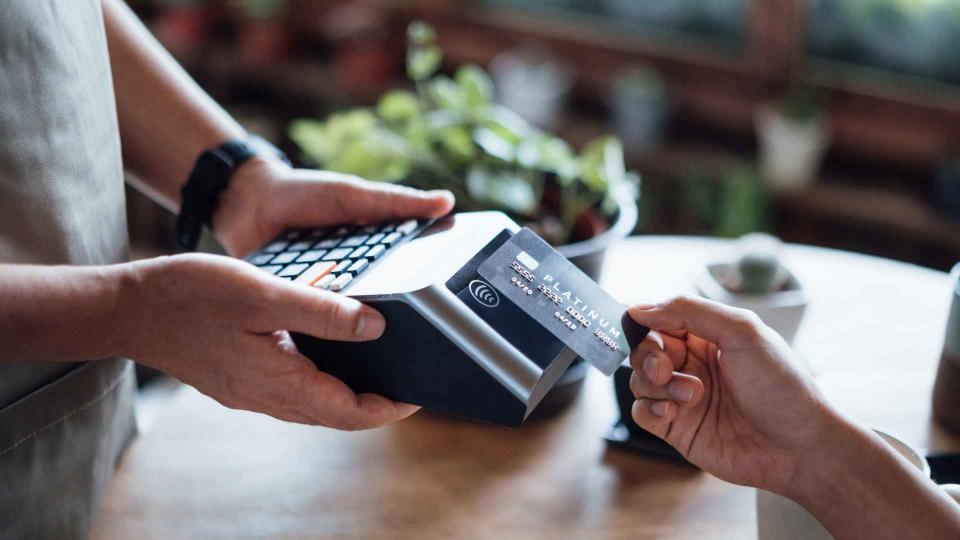I Used To Be an Overspender: 7 Tips From Money Experts That Helped Me Stop

The world is set up for us to buy, buy, buy. And nobody understands that as acutely as a chronic overspender.
Mark S., a graphic designer from Sacramento, used to spend way too much money. He often bought things he didn’t need and found himself stressed about money. “I can’t lie, I’m into buying the latest and greatest,” he told GOBankingRates. “And it became a problem.”
Read Next: I Followed Mark Cuban’s Genius Advice and Am on Track To Become a Millionaire
Find Out: 5 Subtly Genius Things All Wealthy People Do With Their Money
But Mark learned how to change his habits. Here are seven tips that helped him stop overspending.
Track Your Spending
Mark started by looking at where his money was going.
“I was scared to look at my bank statements,” Mark said. “But when I started writing down everything I bought, I was shocked. I was wasting money on stuff I didn’t even remember buying.”
Try using a budgeting app or even a Google spreadsheet to track everything you buy for a month. When you see where everything is going, you can start to readjust based on your wants and needs.
Learn More: I’m a Self-Made Millionaire: I Followed These 7 Grant Cardone Tips To Get Rich
Wait Before You Buy
Mark made a seemingly simple rule: He waited 24 hours before buying something he wanted.
“If I saw something I wanted to buy online, I’d make myself wait a day,” he explained. “It’s such a cliche idea — but it worked! Most of the time, I’d realize I didn’t really need it.”
This simple trick can help you avoid buying things on impulse.
Unsubscribe From Store Emails
Mark found that enticing emails from his favorite stores were making him spend more.
“Those ‘special offer’ emails kept making me want to buy stuff,” Mark said. “When I stopped getting them, I shopped a lot less.”
Unsubscribing from these emails can help you avoid temptation.
Set Money Goals
Having clear goals helped Mark stay motivated to save money.
“I decided I wanted to save for a Tesla” he shared. “Having that goal made it easier to say no to buying things I didn’t need.”
Try setting your own goals, like saving for a trip, a car or any large purchase. When you have a goal in mind, it’ll make it easier to stop yourself from purchasing things you don’t need.
Use Cash for Fun Stuff
Mark started using cash for things like eating out and entertainment.
“I’d take out a set amount of cash each week for fun stuff,” Mark said. “When the cash was gone, that was it. It made me really think about how I was spending my money.”
Using cash can help you stick to a budget because you can see and feel the money leaving your hands.
Find Free or Cheap Things To Do
Mark realized he was spending a lot on entertainment. So he started looking for free or cheap things to do.
“I found out about so many free events in my city,” he said. “I also started having movie nights at home instead of going to the cinema. It was just as fun, and way cheaper.”
Look for free events in your area or find cheaper ways to hang out with friends.
Be Thankful for What You Have
Mark started thinking more about what he already had instead of what he wanted to buy.
“I started writing down three things I was grateful for each day,” Mark shared. “It takes me five minutes and helped me appreciate what I already have.”
Thinking about what you’re thankful for can help you feel happier with what you have and less likely to buy stuff you don’t need.
Changing Habits Takes Time
Mark didn’t change his spending habits overnight. It took time and practice.
“It so wasn’t easy at first,” Mark said. “And I made mistakes sometimes. Just yesterday I stopped at Starbucks and got a matcha latte and a breakfast sandwich, even though I had everything I need at home! But you know what? I’m trying, and I’ll get there.”
More From GOBankingRates
This article originally appeared on GOBankingRates.com: I Used To Be an Overspender: 7 Tips From Money Experts That Helped Me Stop